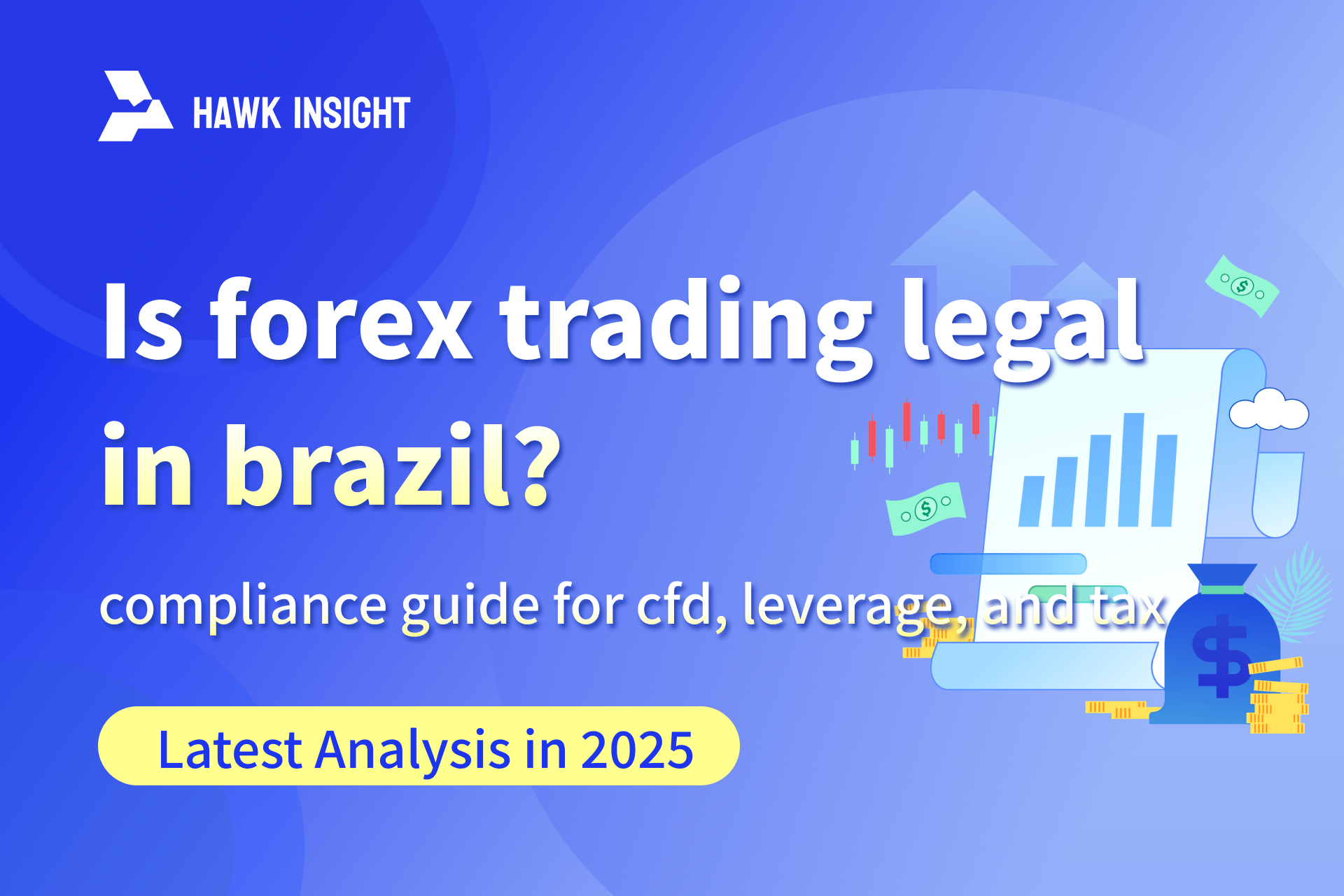Is forex trading legal in brazil? compliance guide for cfd, leverage, and tax
Is forex trading legal in Brazil? Learn everything about ANBIMA and Central Bank regulations, CFD legality, leverage use, and tax reporting for Brazilian forex traders.
Forex trading has become increasingly popular among Brazilian investors, especially as access to international brokers expands. However, many traders still wonder: is forex trading legal in Brazil? What are the rules around CFD trading, leverage, and taxes?

In this article, we’ll answer the most common compliance questions for Brazilian forex traders by explaining the role of Brazil’s financial authorities, the legal status of leveraged products like CFDs, and how profits should be declared.
1. Is Forex Trading Legal in Brazil?
Yes, forex trading is legal in Brazil, as long as it complies with the country’s financial laws and regulations. While there’s no specific domestic license for retail forex brokers, Brazilian residents can legally trade forex through international brokers regulated by overseas authorities.
Two key institutions are involved in regulating Brazil’s broader financial environment:
-
ANBIMA (Associação Brasileira das Entidades dos Mercados Financeiro e de Capitais): A self-regulatory organization that issues guidelines and standards for financial markets.
-
Banco Central do Brasil (Brazilian Central Bank): Controls the flow of foreign currencies, capital movement, and anti-money laundering regulations.
Although forex brokers are not directly regulated by either body for retail trading, individuals are not prohibited from participating in the forex market via offshore brokers.
2. Can Brazilians Trade CFDs Legally?
Contracts for Difference (CFDs) are not explicitly regulated in Brazil. However, Brazilians can trade CFDs through international brokers licensed by reputable financial authorities such as:
-
FCA (UK)
-
CySEC (Cyprus)
-
ASIC (Australia)
Caution: Since CFD providers are not directly supervised by Brazilian authorities, traders should avoid unlicensed local platforms or brokers making unrealistic promises.
3. Is Leveraged Trading Allowed in Brazil?
Using leverage in forex or CFD trading is not illegal in Brazil, but local regulations do not specifically authorize or regulate leveraged financial products. That said, Brazilians can access leveraged trading via international brokers.
Here’s what to know:
-
Brokers under FCA may offer maximum leverage of 30:1.
-
Brokers under CySEC or ASIC may offer 30:1 or more for retail clients.
-
Higher leverage = higher risk, especially for beginners.
Tip: Always understand your broker’s leverage policy, margin requirements, and stop-out levels before trading.
4. Tax Compliance: Do I Need to Report Forex Profits in Brazil?
Yes, forex profits are subject to taxation in Brazil.
-
Forex gains are treated as capital gains (ganho de capital).
-
Profits exceeding R$35,000/month are taxable.
-
The applicable tax rate ranges from 15% to 22.5%, depending on the amount.
-
All gains must be reported to Receita Federal in the annual income tax return (Declaração de Imposto de Renda).
Recommendation: Work with a tax advisor familiar with international investments to ensure full compliance.
Failure to report may result in penalties, interest, and audits.
5. How to Trade Forex Legally and Safely in Brazil
To stay compliant and reduce risks, follow these steps:
- Choose an internationally regulated broker (FCA, CySEC, ASIC, etc.)
- Avoid unregulated or unverified Brazilian platforms
- Fund your account through legitimate banking channels
- Use demo accounts to practice before trading real money
- Learn risk management strategies to handle market volatility
Conclusion: Trade Smart, Stay Legal
Forex trading in Brazil is legal, but it’s essential to stay informed, trade responsibly, and comply with international and local laws. Avoid get-rich-quick schemes, and always prioritize brokers that offer transparency, regulatory protection, and educational support.
By understanding the legal landscape—regulations, CFDs, leverage, and tax—you can build a smarter, safer forex trading experience in Brazil.
[Related Reading] Forex Trading Explained: A Beginner’s Guide to the Currency Market
[Related Reading] 5 most popular brokers among Brazilian traders in 2025: pros & cons
[Related Reading] 2025 US Brokerage comparison and recommendation guide | Essential Guide to Investing
[Related Reading] Best Forex Trading Platform Recommendations for 2025: Full Analysis of Regulatory Compliance and Trading Costs
·Original
Disclaimer: The views in this article are from the original Creator and do not represent the views or position of Hawk Insight. The content of the article is for reference, communication and learning only, and does not constitute investment advice. If it involves copyright issues, please contact us for deletion.